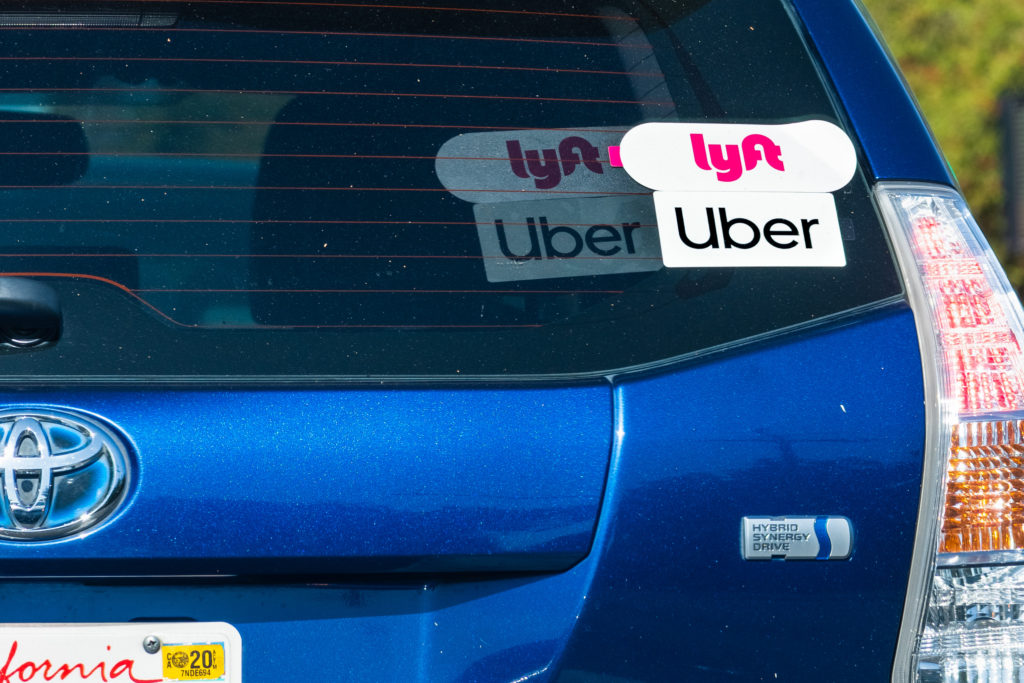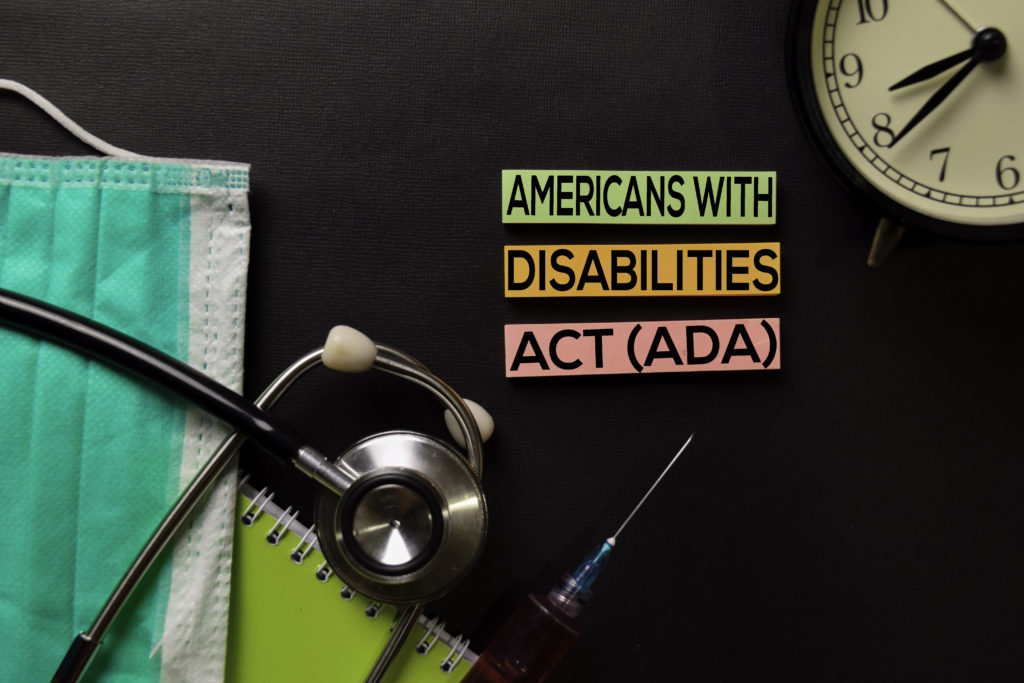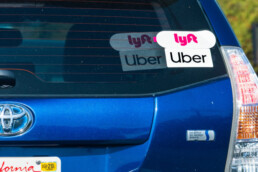AG Seeks Injunction to Protect Uber/Lyft Drivers
A bold move by the California Attorney General could have a significant impact on the estimated 500,000 Uber and Lyft drivers in California. On June 24, 2020, Attorney General Xavier Becerra announced plans to file for a preliminary injunction to force the ride-hailing companies to classify drivers as employees rather than independent contractors.
According to the attorney general, “Mis-classifying your workers as ‘consultants’ or ‘independent contractors’ simply means you want your workers or taxpayers to foot the bill for obligations you have as an employer.” Specifically, by characterizing drivers as independent contractors, according to Becerra, the employers can avoid “paying a legal wage or overtime, providing sick leave, or providing unemployment insurance.”

This issue is not new, and the attorney general and the city attorneys of Los Angeles, San Francisco and San Diego previously sued Uber and Lyft in May 2020, claiming that the companies mis-classified drivers in violation of the newly enacted state law A.B. 5, which made it more difficult to classify workers as independent contractors. Despite being controversial, A.B. 5 provides protection to many workers that were previously mis-classified as independent contractors by employers in order to limit workers’ rights to overtime pay or sick leave, unemployment benefits, workers compensation, and refuse reimbursement for driving expenses.
The test for independent contractors established by A.B. 5, which went in to effect on January 1, 2020, largely due to the CA Supreme Court ruling in Dynamex Operations West, Inc. v. Superior Court of Los Angeles which established a new test for independent contractor:
- The worker works outside the “usual business;” and
- The worker “customarily” does the same work for the alleged employer as part of an “independent business.”
Based on the new test, Attorney General Becerra argues that drivers for Uber and Lyft are “employees” under California state law, and therefore are entitled to rights afforded to all employees in California. If the injunction is granted, Uber and Lyft will be forced to re-classify drivers as employees immediately. Furthermore, a ruling against the ride-hailing companies in the on-going lawsuit filed in May would possibly result in restitution for unpaid wages owed to drivers, civil penalties, and perhaps permanently prohibit the companies from mis-classifying drivers as independent contractors in the future.
FREE CONSULTATION
Srourian Law Firm, with locations in Los Angeles, Westwood, Woodland Hills, and Orange County is experienced in all aspects of employment law violations by Uber or Lyft, and have aggressively represented employees in Los Angeles, Hollywood, Santa Monica, Orange, Irvine, Anaheim, Santa Ana, Newport Beach, Costa Mesa, Fullerton, Tustin, Mission Viejo, San Clemente, Garden Grove, Laguna Niguel, Brea, Fountain Valley, Aliso Viejo, Yorba Linda, Westminster, Laguna Hills, Cypress, and La Habra.
If you or someone you know suffered employment violations as a driver for Uber or Lyft, you may have certain employee rights under state and federal law, and may be entitled to compensation as a part of the class action lawsuit. Please contact us to speak with one of our lawyers for a free consultation.
Reasonable Accommodations Required During COVID-19

As the country continues to combat COVID-19, employees must be aware of their rights and ensure that their employees comply with all federal, state and local labor laws including the American with Disabilities Act (ADA). Under the ADA, federal law requires employees provide reasonable accommodations for disabilities covered under the act. However, according to the U.S. Equal Employment Opportunity Commission (EEOC), the most common complaint being filed by employees during the pandemic is employers failing to accommodate their disabilities.
The ADA has specific provisions regarding accommodations that employers must provide to employees with disabilities regardless of the extenuating circumstances due to COVID-19. Generally, the ADA requires employees to modify an employee’s job or work environment in order to ensure an employee with a disability is able perform the essential functions of their job. According to the law, the employer must make all “reasonable accommodations” as long as there is no “undue hardship.” As with many statutes, the legal definitions may not be obvious, so you should consult an experienced employment law attorney to explain the law and your rights.
The protections under the California state equivalent to the ADA are found in the California Fair Employment and Housing Act (FEHA). The FEHA protects employees with a physical or mental disability and requires employers provide reasonable accommodations such as changing work schedules, relocating the work area, modifying job duties and providing leave for medical care.
With the additional health and safety concerns due to COVID-19, all employees, particularly employees with disabilities must ensure their rights are not being violated. For example, some employees may have an underlying condition that creates a greater risk for COVID-19. Under both federal and state labor laws, the employee is entitled to reasonable accommodations to ensure their safety in the workplace if the risk is directly related to the disability.
The added health risks due to COVID-19 have impacted many aspects of labor law and the workplace, particularly if an employee has an existing qualified disability under the ADA or FEHA. Federal and state labor laws offer a wide range of protection besides accommodations. For example, all medical information of employees, related to a disability or COVID-19, must be confidential. Moreover, the ADA and FEHA provides protections to prospective employees and require hiring policies that provide equal opportunities to applicants regardless of any disability. Again, the employer must provide a reasonable accommodation to an applicant as long as it would not create an undue hardship.
If you believe your employee is violating your rights as an employee under the ADA or FEHA, you should consult an experienced employment law attorney to discuss your case and options.
FREE CONSULTATION
Srourian Law Firm, with locations in Los Angeles, Westwood, Woodland Hills, and Orange County is experienced in all aspects of employment law including ADA and FEHA violations and have aggressively represented employees in Los Angeles, Hollywood, Santa Monica, Orange, Irvine, Anaheim, Santa Ana, Newport Beach, Costa Mesa, Fullerton, Tustin, Mission Viejo, San Clemente, Garden Grove, Laguna Niguel, Brea, Fountain Valley, Aliso Viejo, Yorba Linda, Westminster, Laguna Hills, Cypress, and La Habra.
If you or someone you know suffered employment violations as an employee including ADA or FEHA violations, you may have certain employee rights under state and federal law, and may be entitled to compensation as a part of the class action lawsuit. Please contact us to speak with one of our lawyers for a free consultation.


